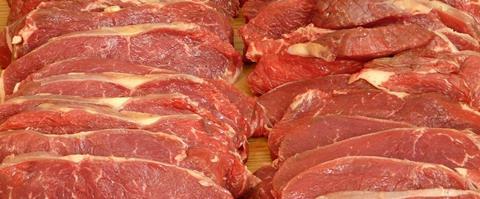
A study published by Oxford Academic’s International Journal of Epidemiology reports people who eat red and processed meat within department of health guidelines are still at increased risk of bowel cancer – Meat Management brings you the industry's responses.

AHDB and Meat Advisory PanelDr Carrie Ruxton: “Red meat provides valuable nutrients, such as protein, iron, zinc, vitamin D and B vitamins. Meat consumption has declined significantly over the past few years and average intakes are now well below NHS guidelines.“Therefore, British consumers in general are already eating the right amounts of red meat and can continue to enjoy it as part of a balanced diet.“There is no consistent evidence that any one food, including red meat, causes cancer. Instead, it’s known that a range of lifestyle factors have a significant impact on the risk of bowel cancer, most notably age, genetics, lack of dietary fibre, inactivity and high alcohol consumption.“Previous U.K. studies, including those published by Prof Key’s group, have found no statistical differences in mortality rates or bowel cancer risks between meat eaters and vegetarians. This is why we need to consider the totality of evidence, not just one study”.

AIMSNorman Bagley, head of Policy: "Once again, as in life it's all a question of balance. The nutritional benefits of red meat are often overlooked and itcontinues to play a part in a healthy diet. Meat is, and always will be, a major source of protein which helps to improve satiety and fills you up for longer."However, studies like this are important in informing the ongoing important debate around encouraging people to adopt an overall healthy lifestyle. That is just common sense. The guidelines indicate that the UK daily consumption is already at 70g per day."Red meat also provides other minerals such as potassium and selenium. Selenium is an important antioxidant, which has been linked to reducing the risk of heart disease and certain cancers."Red meat is a significant source of B vitamins, including B12, which is not found naturally in foods of plant origin and is important for healthy red blood cells, growth and the production of energy. It also makes an important contribution to vitamin D intakes. Vitamin D works with calcium and phosphorous to build strong bones and teeth."

BMPANick Allen, chief executive: “Red meat contains an efficient package of essential nutrients important for the body. For this reason, Government guidelines suggest we should have 70g of red meat a day.“Average population intake in the UK is currently below this figure. Any suggestion that we should further reduce our intake could have unintended detrimental consequences on health.“

The Q GuildClaire Holland, manager: “Like all food items we consume many considerations need to be taken into account. What is eaten with any meat we consume, whether the meat is processed or lean as well as how often.“In addition, exercise and accompanying drinks play an important factor, therefore, to put the blame solely on red meat is always a very hard comment to swallow. I would want more robust evidence taking into account all the variables.”
Dr Julie Sharp, Cancer Research UK’s head of health information, did bring some balance to the debate adding: “This information doesn't necessarily mean cutting out red and processed meat entirely.”You can read the full report here.
This story was originally published on a previous version of the Meat Management website and so there may be some missing images and formatting issues.















